Description
ABSTRACT
The Remittance of Withholding and Pay as You Earn Tax in Nigeria
Sabit Lawal*
Taxes are compulsorily exacted by the authority for purposes of the public. It is therefore obligatory on corporate and incorporate persons to deduct tax on basis of Pay-As-You-Earn (PAYE) or withholding tax (WHT) and to account for the tax so deducted to the tax authority. Deducting tax from source guarantees regular flow of income to the government, and check against tax evasion and delinquency in filing tax returns by the payee. In Nigeria, there exists legal framework for the remittance of tax, and penalty in case of default. However, in spite of the various legal provisions, it is a basic fact that withholding taxes and PAYE are actually deducted from source, but are not remitted to the relevant tax authority. The resultant effects of non-remittance are of different hues. Firstly, it denies the payer the benefit of tax credit. Secondly, it denies the government revenue to provide social amenities amongst others for its citizens. The paper posits that if corporate and incorporate organisations that are concerned with the deductions and remittance of the tax, live up to expectation, government will have enough revenue to discharge its duties to the citizenry. The paper advises that the government should discharge its responsibilities to the citizenry from the revenue derived by it, including, but not limited to the remitted tax, and there should be an administrative framework designed by the tax authority to detect majority, if not all defaulters.
INTRODUCTION
It is a common practice among some employers, most of whom are private companies, to deduct from source, the tax of their employees without remitting the deduction to the appropriate tax authority.1 Similarly, banks and companies, being the keepers of government’s funds, such as withholding tax deducted from their customers’ deposits or payees’ fees also engage themselves in this practice of non-remission of tax to the government. This conduct is an offence under the various laws guiding the enforcement of tax in Nigeria.
This paper examines the remittance of withholding tax2 and Pay As You Earn tax3 deducted from source, from the employees by the employers or from any compensation for contract or services rendered, to the tax authority. The paper queries whether the duty to remit tax is a mere obligation, the default of which attracts no penalty, or a criminal offence? Is there any legal framework for the default of the obligation in Nigeria? Who should be held liable for non-remission of tax where there is default? Can a defaulter be sentenced to a term of imprisonment for his default? If this is affirmatively asserted, where it is a company that defaulted in remittance of tax, what are the appropriate punishments for such a company? Furthermore, does the tax authority have the power to distrain or distress the property of any company that has failed to remit tax, in spite of the fact that what it fails to remit is money, and not property? Is it appropriate for the tax authority to demand the remittance of tax from the emoluments paid to a deceased employee? These, and other related issues are examined in this paper.
* LL.B (OOU), LL.M (OAU), LL.M (Dalhousie, Canada), BL. Lecturer, Faculty of Law, Lagos State University, Ojo
- “Tax authority” means the body conferred with the powers of assessing, collecting/exacting, and accounting for all taxes collected on behalf of the government, and includes the Federal Inland Revenue Service, (See, s 1 and 2 of the Federal Inland Revenue Service (Establishment) Act); the State Inland Revenue Service, (in respect of State authority), and the Local Government Revenue Committee, (See, section 108 of the Personal Income Tax 2. (Amendment) Act, No. 20, 2011
- Hereinafter referred to as “WHT”

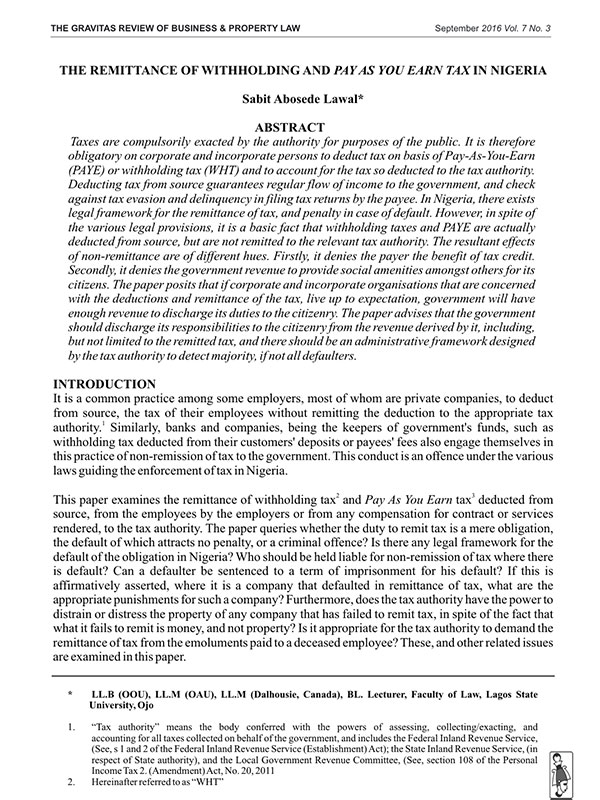
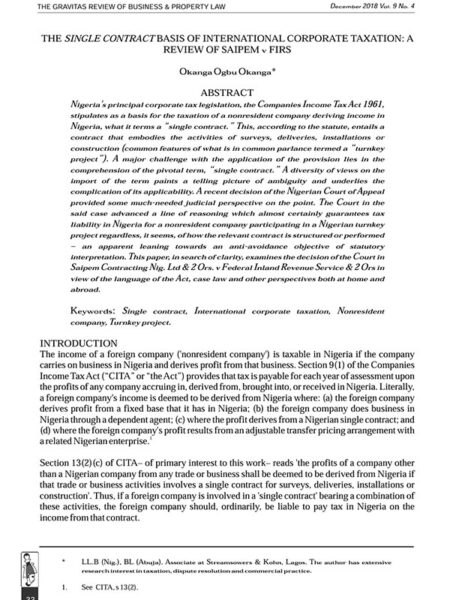
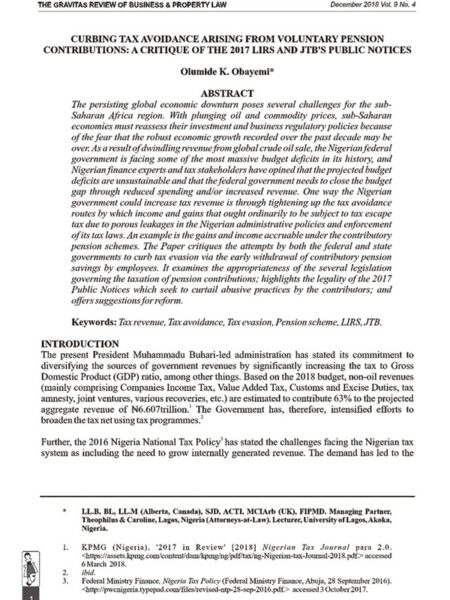
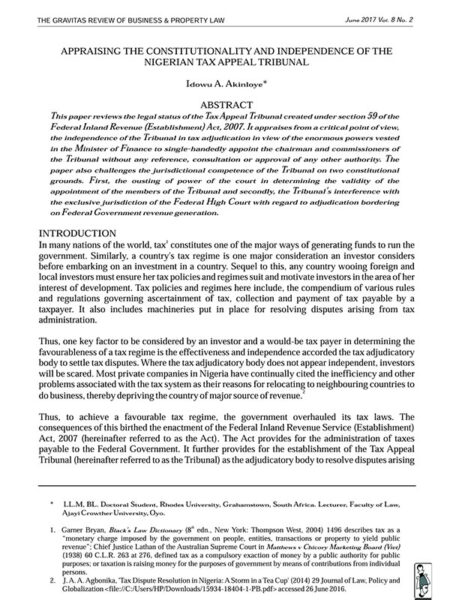
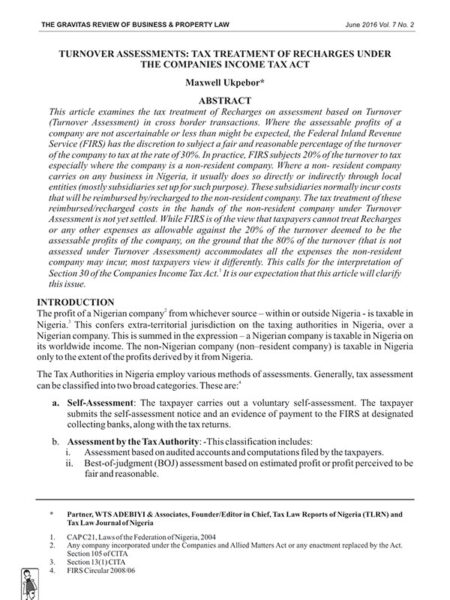


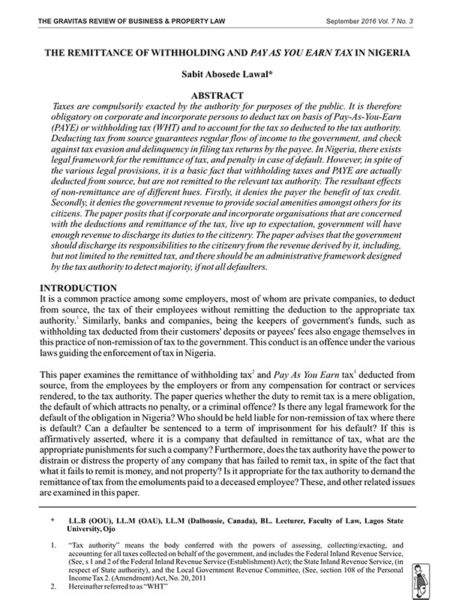
Reviews
There are no reviews yet.